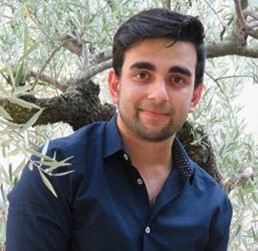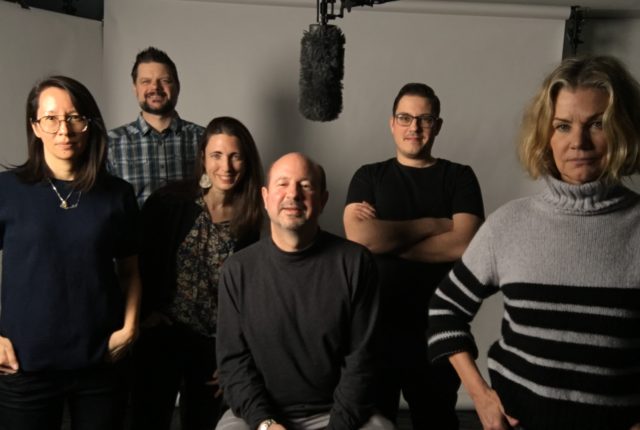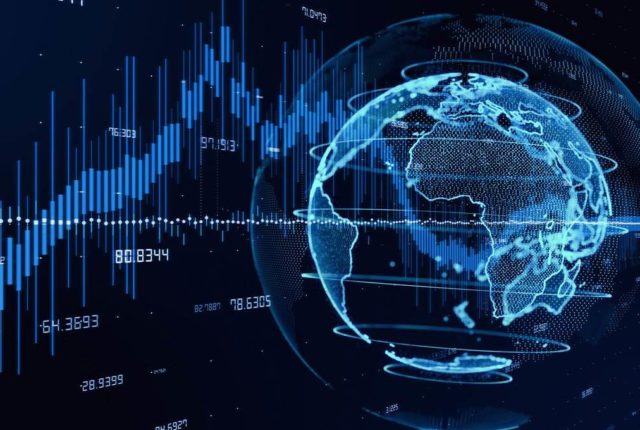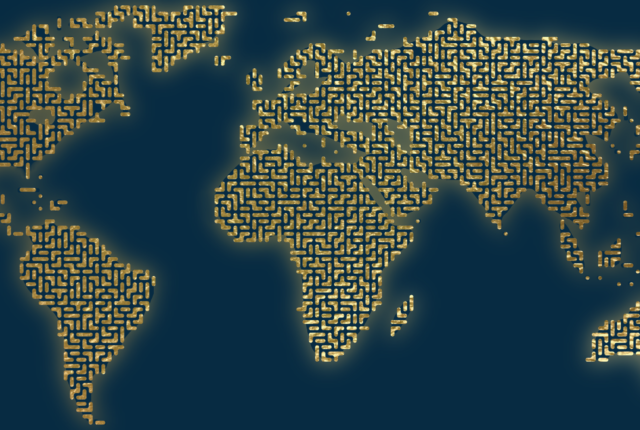By SDG Academy
Mikhail Fernandes, United Nations Environment Programme, serves as a lead faculty member in the Nature-based Solutions (NbS) for Disaster and Climate Resilience by the SDG Academy. The Course addresses vital questions like “How can they help build resilience to disasters and climate change impacts?”
We sat down with Mikhail to learn more about his input on the importance of Nature-based Solutions, the importance of advocacy, innovation, and education for increasing the visibility of NbS internationally.
What do you wish everyone understood about Nature-based Solutions? What impact can it generate on the world?
Given the current state of our planet, it is important for us to reflect and recognize the vitality and need for Nature-based Solutions (NbS). Integrating NbS provides us with a unique opportunity to give back to Nature and to rethink our relationship with Nature. NbS can be cost-effective while also supporting a multitude of benefits. The benefits of NbS can include helping reduce greenhouse gas emissions, improve air and water quality, and foster biodiversity. As an example, the case for NbS can be further highlighted in the act of restoring wetlands. Wetlands can help mitigate the impacts of floods, provide a habitat for wildlife, and store carbon (among many other benefits). This is just one of many examples we can use when discussing the need for NbS. There is certainly opportunity in utilizing NbS to help generate a positive impact for our current and future generations. However, there is also still an opportunity for us to conduct further research in better understanding the full potential of NbS, especially in support of the Sustainable Development Goals (SDGs). Through enhanced research, we can also help build stronger partnerships and collaborations among diverse sectors and stakeholders who may share a common interest in NbS and the SDGs.
What challenges arise in your field of expertise that can compromise sustainability efforts, and how do you overcome them?
Even though Nature-based Solutions (NbS) can help provide an array of benefits; there are still certain challenges associated with its implementation. The challenges I perceive mainly revolve around the need for greater enhancement of shared knowledge and capacity-building at the community, institutional, and organizational levels. I firmly believe that cross-sectoral engagement is critical in our environmental sector, particularly when engaging with NbS initiatives. We need a stronger consolidated and coordinated effort in working together across sectors in helping enhance NbS synergies. There is also a genuine need to formulate and incentivize innovative financing mechanisms to mobilize greater funding for NbS and to scale up private and public finance for NbS. Furthermore, research is fundamental to better understand the benefits and limitations of different NbS approaches within different contexts. From our team, we have strived to research, produce, and disseminate NbS knowledge products at the Partnership for Environment and Disaster Risk Reduction and the United Nations Environment Programme. By having research-based evidence on-hand, I believe that it will help better communicate the case of NbS to decision-makers and to those who need it the most.
What is the most meaningful part of your work?
I have been in a very fortunate position to have been given the opportunity to help co-develop and produce several knowledge products during my time at the United Nations Environment Programme. The ability to develop an array of knowledge products on Ecosystem-based Disaster Risk Reduction (Eco-DRR) and Nature-based Solutions (NbS) has been a meaningful experience. By developing such products, our team has been able to promote Eco-DRR/NbS understanding and awareness, facilitate knowledge sharing and capacity building, and support evidence-based decision-making during major Conference of Parties. Even though I often find myself working behind the desk typing up and editing materials such as case studies, results sheets, success stories, and case study films; I still feel that my work ignites an impact in bringing greater visibility to our Eco-DRR/NbS initiatives at the global level.
How and where do you find inspiration?
The ability to work and collaborate with youth networks has served as a catalyst for my inspiration. I have been in a very fortunate position to have worked with numerous young leaders and changemakers both in an office setting and in the field. The ability to engage with youth in NbS means promoting intergenerational collaboration, building capacity for future leadership, and ensuring that NbS efforts benefit all members of society, regardless of age and socio-economic status. We need to acknowledge that youth are the future of our planet and the decisions that are taken now will impact their lives and for the generations to come. Thus, youth need to be actively involved in shaping NbS dialogues, strategies, and frameworks. The voices of the youth matter and we must take the time to listen to them. And I certainly hope that more people will continue to get inspired by our youth and all the environmental work they do for our planet.
What notable contributions to sustainability have come from your professional sector?
On a more personal note, I have spent most of my adolescent years and young-professional life working and living in a multitude of countries. The ability to work across boundaries provided me with valuable insights on how to best work in a diversified workforce. Furthermore, the landscapes I have worked in range from the coastal areas of the Arabian Sea, the Himalayas, the Deccan Plateau, the Veneto Po Delta, and the prairies of the American mid-west. Most of my work in the field has revolved around native land restoration and conservation at the local and regional level. Currently, my work at UNEP revolves more around advocacy and enhancing our Eco-DRR project visibility among critical target groups at the national and global level.
Also, when talking about ‘notable contributions’, I need to give a shoutout to our online course on “Nature-based Solutions (NbS) for Disaster and Climate Resilience”. Currently, over 60,000+ people from 190+ countries have enrolled in our online course. The fact that we have quite a sizable enrollment in our course indicates that people are keen to learn more about the vitality of NbS in our society. If you look up our dedicated hashtag #NatureforResilience on social media, you will see a lot of engagement from course participants who have shared their experiences and interests in contributing to NbS.
What does an optimistic future look like for your professional field?
An optimistic future is a future where we can all mutually recognize the deep interconnectedness between Nature, human well-being, and economic prosperity. We need an all-hands-on-deck approach bringing together people from a variety of sectors and disciplines working together to safeguard our people and planet. It is vital for NbS to be better integrated into policies and planning frameworks from the local level to the global level. We also need to transition away from our traditional siloed approaches and have a better and more inclusive approach to decision-making and environmental management. It is vital to adopt a more integrated approach that considers the social, economic, and environmental dimensions of NbS. This would allow us to engage with diverse stakeholders, including local communities, government agencies, NGOs, and private sector actors.
What is one piece of advice you want to share with everyone promoting and advocating for sustainability?
The moral of the story is that we need to be working with Nature rather than against Nature. Whenever we talk about ‘Sustainability’, we must include ‘NbS’. Advocacy, education, and innovation are necessary to increase the visibility of NbS in major international frameworks and agreements. By utilizing NbS, we can help address multiple social, economic, and environmental challenges at the same time. This multi-faceted approach helps address the needs of multiple SDGs. Through this NbS approach, we can foster and cultivate more sustainable and resilient communities. However, it is important to note that financial and technical support is still needed, particularly for vulnerable populations residing in developing contexts. We must never forget those who are on the frontlines of climate change. We need to remember that climate change has no boundaries and climate change will impact all of us in some capacity. We need to collectively work together in being Nature’s ally to help mitigate such challenges for our current and future generations.

Mikhail Fernandes
Mikhail Fernandes began his environmental work in Southern India, where he led community-based forest conservation projects. He then spent several years in the United States supporting native prairie and river restoration projects; including the development of a farm-to-fork initiative in rural Indiana. He
has worked in the Western Cape Province in South Africa, mentoring gang-inflicted youth and marginalized groups. He has also supported the development and implementation of permaculture practices in Ubud, Indonesia. Currently, he is working for the United Nations Environment Programme supporting the promotion and implementation of Ecosystem-based Disaster Risk Reduction alongside the Partnership for Environment and Disaster Risk Reduction.




